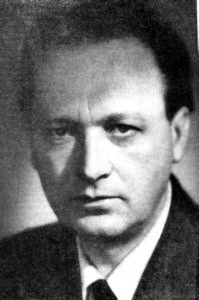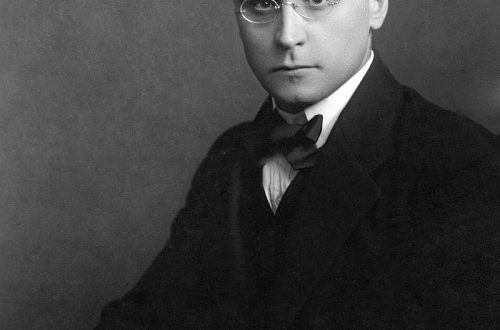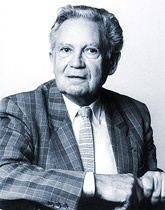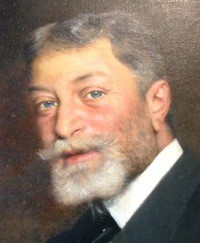
Lyubomir Pipkov |
Contents
Lyubomir Pipkov

L. Pipkov is “a composer who generates influences” (D. Shostakovich), the leader of the Bulgarian school of composers, which has reached the level of modern European professionalism and has received international recognition. Pipkov grew up among the democratic progressive intelligentsia, in the family of a musician. His father Panayot Pipkov is one of the pioneers of professional Bulgarian music, a songwriter who was widely circulated in revolutionary circles. From his father, the future musician inherited his gift and civic ideals – at the age of 20 he joined the revolutionary movement, participated in the activities of the then underground Communist Party, risking his freedom, and sometimes his life.
In the mid 20s. Pipkov is a student of the State Musical Academy in Sofia. He performs as a pianist, and his first composing experiments also lie in the field of piano creativity. An outstandingly gifted young man receives a scholarship to study in Paris – here in 1926-32. he studies at the Ecole Normale with the famous composer Paul Duc and with the teacher Nadia Boulanger. Pipkov quickly grows into a serious artist, as evidenced by his first mature opuses: Concerto for Winds, Percussion and Piano (1931), String Quartet (1928, it was generally the first Bulgarian quartet), arrangements of folk songs. But the main achievement of these years is the opera The Nine Brothers of Yana, begun in 1929 and completed after returning to his homeland in 1932. Pipkov created the first classical Bulgarian opera, recognized by music historians as an outstanding work, which marked a turning point in the history of the Bulgarian musical theater. In those days, the composer could embody the acutely modern social idea only allegorically, on the basis of folk legends, referring the action to the distant XIV century. On the basis of the legendary and poetic material, the theme of the struggle between good and evil is revealed, embodied primarily in the conflict between two brothers – the evil envious Georgy Groznik and the talented artist Angel, who was ruined by him, a bright soul. A personal drama develops into a national tragedy, for it unfolds in the depths of the masses of the people, suffering from foreign oppressors, from the plague that has befallen the country … Drawing the tragic events of ancient times, Pipkov, however, has in mind the tragedy of his day. The opera was created in the fresh footsteps of the September anti-fascist uprising of 1923 that shook the whole country and was brutally suppressed by the authorities – that was the time when many of the country’s best people died, when a Bulgarian killed a Bulgarian. Its topicality was understood immediately after the premiere in 1937 – then official critics accused Pipkov of “communist propaganda”, they wrote that the opera was seen as a protest “against today’s social system”, that is, against the monarchical fascist regime. Many years later, the composer admitted that this was the case, that he sought in the opera “to reveal the truth of a life full of wisdom, experience and faith in the future, the faith that is necessary to fight against fascism.” “Yana’s Nine Brothers” is a symphonic musical drama with a sharply expressive language, full of rich contrasts, with dynamic crowd scenes in which the influence of the scenes of M. Mussorgsky’s “Boris Godunov” can be traced. The music of the opera, as well as of all Pipkov’s creations in general, is distinguished by a bright national character.
Among the works with which Pipkov responded to the heroism and tragedy of the September anti-fascist uprising are the cantata The Wedding (1935), which he called a revolutionary symphony for choir and orchestra, and the vocal ballad The Horsemen (1929). Both are written on Art. great poet N. Furnadzhiev.
Returning from Paris, Pipkov is included in the musical and social life of his homeland. In 1932, together with his colleagues and peers P. Vladigerov, P. Staynov, V. Stoyanov and others, he became one of the founders of the Modern Music Society, which united everything progressive in the Russian composer school, which was experiencing its first high rise. Pipkov also acts as a music critic and publicist. In the program article “On the Bulgarian Musical Style”, he argues that composer creativity should develop in line with socially active art and that its basis is fidelity to the folk idea. Social significance is characteristic of most of the master’s major works. In 1940, he created the First Symphony – this is the first truly national in Bulgaria, included in the national classics, a major conceptual symphony. It reflects the spiritual atmosphere of the era of the Spanish Civil War and the beginning of the Second World War. The concept of the symphony is a nationally original version of the well-known idea “through struggle to victory” – embodied on the basis of Bulgarian imagery and style, based on the patterns of folklore.
Pipkov’s second opera “Momchil” (the name of the national hero, leader of the haiduks) was created in 1939-43, completed in 1948. It reflected the patriotic mood and democratic upsurge in Bulgarian society at the turn of the 40s. This is a folk musical drama, with a brightly written, multifaceted image of the people. An important place is occupied by the heroic figurative sphere, the language of mass genres is used, in particular the revolutionary marching song – here it organically combines with the original peasant folklore sources. The mastery of the playwright-symphonist and the deep national soil of style, characteristic of Pipkov, are preserved. The opera, first shown in 1948 at the Sofia Theater, became the first sign of a new stage in the development of Bulgarian musical culture, the stage that came after the revolution of September 9, 1944 and the country’s entry into the path of socialist development.
A democrat-composer, a communist, with a great social temperament, Pipkov deploys a vigorous activity. He is the first director of the revived Sofia Opera (1944-48), the first secretary of the Union of Bulgarian Composers established in 1947 (194757). Since 1948 he has been a professor at the Bulgarian State Conservatory. During this period, the modern theme is asserted with particular force in Pipkov’s work. It is especially vividly revealed by the opera Antigone-43 (1963), which remains to this day the best Bulgarian opera and one of the most significant operas on a modern subject in European music, and the oratorio On Our Time (1959). A sensitive artist raised his voice here against the war – not the one that has passed, but the one that again threatens people. The richness of the psychological content of the oratorio determines the boldness and sharpness of contrasts, the dynamics of switching – from the intimate lyrics of letters from a soldier to his beloved to a cruel picture of general destruction as a result of an atomic strike, to the tragic image of dead children, bloodied birds. Sometimes the oratorio acquires theatrical power of influence.
The young heroine of the opera “Antigone-43” – the schoolgirl Anna, like Antigone once, enters into a heroic duel with the authorities. Anna-Antigone emerges from the unequal struggle as the winner, although she gets this moral victory at the cost of her life. The music of the opera is notable for its harsh restrained strength, originality, subtlety of the psychological development of vocal parts, in which the ariose-declamatory style dominates. The dramaturgy is sharply conflicted, the tense dynamism of the duel scenes characteristic of musical drama and brief, like a spring, tense orchestral interludes, are opposed by epic choral interludes – this is, as it were, the voice of the people, with its philosophical reflections and ethical assessments of what is happening.
In the late 60s – early 70s. a new stage is outlined in Pipkov’s work: from the heroic and tragic concepts of civic sound, there is an ever greater turn to the lyrical-psychological, philosophical and ethical issues, the special intellectual sophistication of the lyrics. The most significant works of these years are Five Songs on Art. foreign poets (1964) for bass, soprano and chamber orchestra, Concerto for clarinet with chamber orchestra and Third Quartet with timpani (1966), lyrical-meditative two-part Symphony Fourth for string orchestra (1970), choral chamber cycle at st. M. Tsvetaeva “Muffled Songs” (1972), cycles of pieces for piano. In the style of Pipkov’s later works, there is a noticeable renewal of his expressive potential, enriching it with the latest means. The composer has come a long way. At each turn of his creative evolution, he solved new and relevant tasks for the entire national school, paving the way for it into the future.
R. Leites
Compositions:
operas – The Nine Brothers of Yana (Yaninite the maiden brother, 1937, Sofia folk opera), Momchil (1948, ibid.), Antigone-43 (1963, ibid.); for soloists, choir and orchestra – Oratorio about our time (Oratorio for our time, 1959), 3 cantatas; for orchestra – 4 symphonies (1942, dedicated to the civil war in Spain; 1954; for strings., 2 fp., trumpet and percussion; 1969, for strings), variations for strings. orc. on the theme of an Albanian song (1953); concerts with orchestra – for fp. (1956), Skr. (1951), class. (1969), clarinet and chamber orchestra. with percussion (1967), conc. symphony for vlc. with orc. (1960); concerto for wind, percussion and piano. (1931); chamber-instrumental ensembles – sonata for Skr. and fp. (1929), 3 strings. quartet (1928, 1948, 1966); for piano – Children’s album (Children’s album, 1936), Pastoral (1944) and other plays, cycles (collections); choirs, including a cycle of 4 songs (for women’s choir, 1972); mass and solo songs, including for children; music for films.





